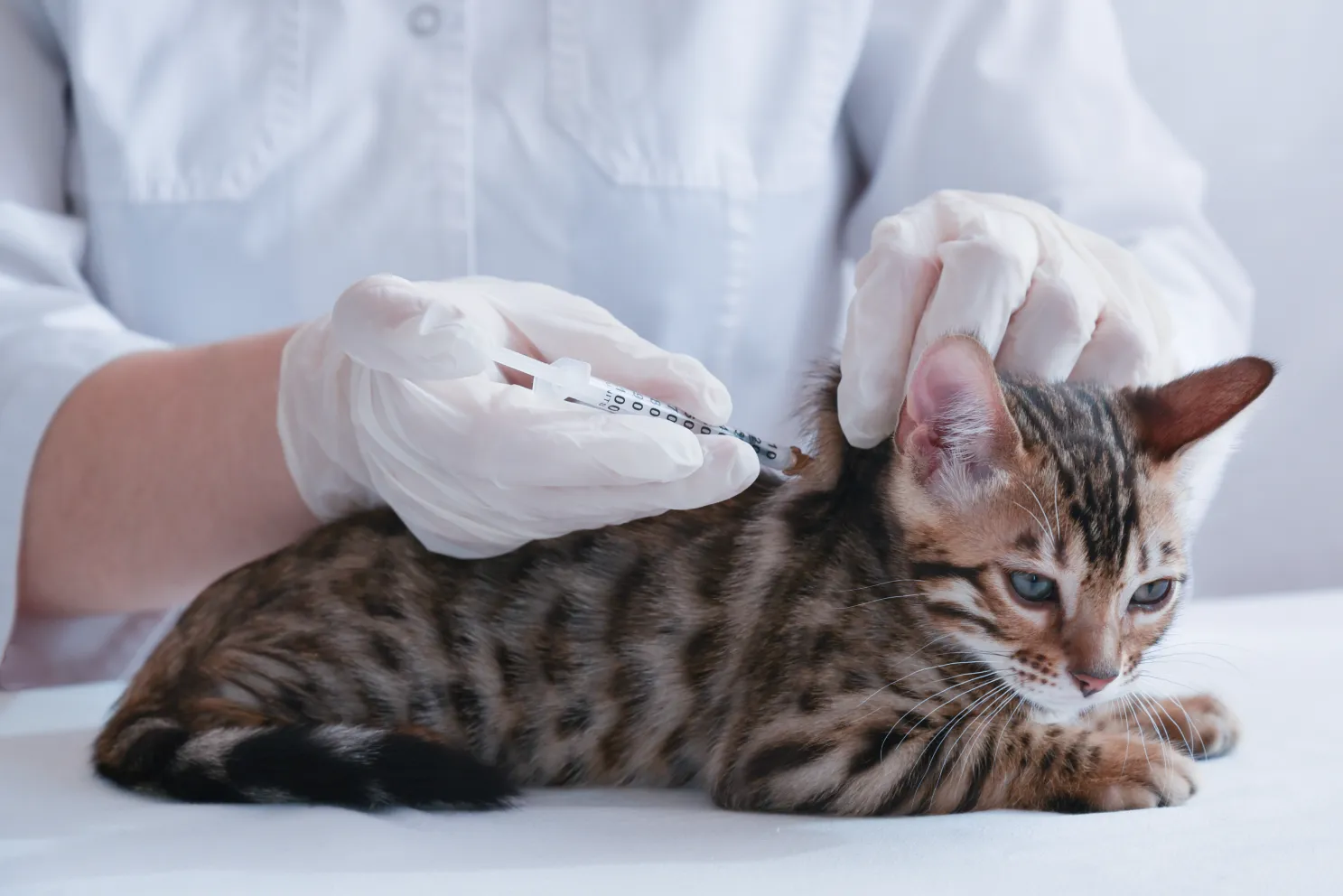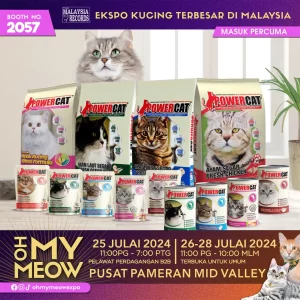Having your furbabies vaccinated plays a huge role for preventive care as it safeguards from potentially fatal diseases. However, misinformation and misunderstanding often leads to confusion and hesitation among pet owners. This article helps to dispel common myths and provide accurate information about feline vaccinations, empowering pet owners to make informed decisions for their cat’s health.
Myth 1: “My cat doesn’t need a vaccine shot because it is fully indoors”
One of the most persistent myths is that indoor cats are safe from diseases and therefore don’t require vaccinations. While it’s true that indoor cats have reduced risk of exposure compared to outdoor cats, they are not entirely immune. Diseases can be introduced into homes through various means, such as fleas, contaminated clothing, or even visitor’s pets. Furthermore, indoor cats can still contract diseases like feline leukemia virus (FeLV) or feline immunodeficiency virus (FIV) through contact with other cats, even if they never venture outside.
Myth 2: “I choose to not get a shot for my cat because it might give side effects”
While it’s true that any medical procedure carries a risk of adverse reactions, the risk associated with feline vaccinations is minimal. Modern vaccines are highly refined and undergo rigorous testing to ensure safety. Adverse reactions are typically mild and short-lived, such as lethargy, fever, or soreness at the injection site. In rare cases, more severe reactions may occur, but these are highly uncommon and can usually be managed effectively by a veterinarian.
Myth 3: “I’m afraid vaccines can cause illness to my cat”
A common misconception is that vaccines can cause the disease they are designed to prevent. This is categorically false. Vaccines contain a weakened or inactive form of the disease-causing agent, or a component of it, which stimulates the cat’s immune system to produce antibodies against the disease. This immune response protects the cat from the future infection.
Myth 4: “I thought vaccines are only for kittens”
While kittens require a series of vaccinations to build their immune system, adult cats also need booster vaccinations to maintain protection. The recommended vaccination schedule varies depending on factors such as the cat’s lifestyle, geographic location, and the prevalence of certain diseases in the area. A veterinarian can provide personalized advice on the appropriate vaccination schedule for your cat.
Myth 5: “I believe that natural immunity is stronger”
Some pet owners believe that cats can develop natural immunity to diseases without the need for vaccinations. While it’s true that cat can acquire some level of immunity through exposure to the environment, natural immunity can be unpredictable and may not provide complete protection. Vaccinations offer a more reliable and consistent way to safeguard cats from diseases.
Conclusion
Feline vaccinations are essential for protecting cats from a variety of diseases. By understanding the facts and dispelling common myths, pet owners can make informed decisions about their cats’ healthcare and ensure their long-term well-being. It’s important to consult with a veterinarian to develop a vaccination schedule that is tailored to your cat’s individual needs.
References
- American Veterinary Medical Association (AVMA). (2023). Core and Non-Core Vaccine Recommendations for Dogs and Cats. Retrieved from https://www.avma.org/resources-tools/pet-owners/petcare/vaccinations
- Centers for Disease Control and Prevention (CDC). (2023). Pet Vaccination. Retrieved from https://www.cdc.gov/importation/hcp/dog-importation/index.html
- World Organization for Animal Health (OIE). (2023). Vaccination. Retrieved from https://pubmed.ncbi.nlm.nih.gov/17892158/
- American Animal Hospital Association (AAHA). (2023). Vaccination Guidelines for Dogs and Cats. Retrieved from https://www.aaha.org/resources/2022-aaha-canine-vaccination-guidelines/
- National Institute of Allergy and Infectious Diseases (NIAID). (2023). Vaccines and Autism: What You Need to Know. Retrieved from https://www.ncbi.nlm.nih.gov/pmc/articles/PMC8694782/
Dr. Muhamad Aiman Bin Mohd Mokhtar
D.V.M Universiti Malaysia Kelantan.





